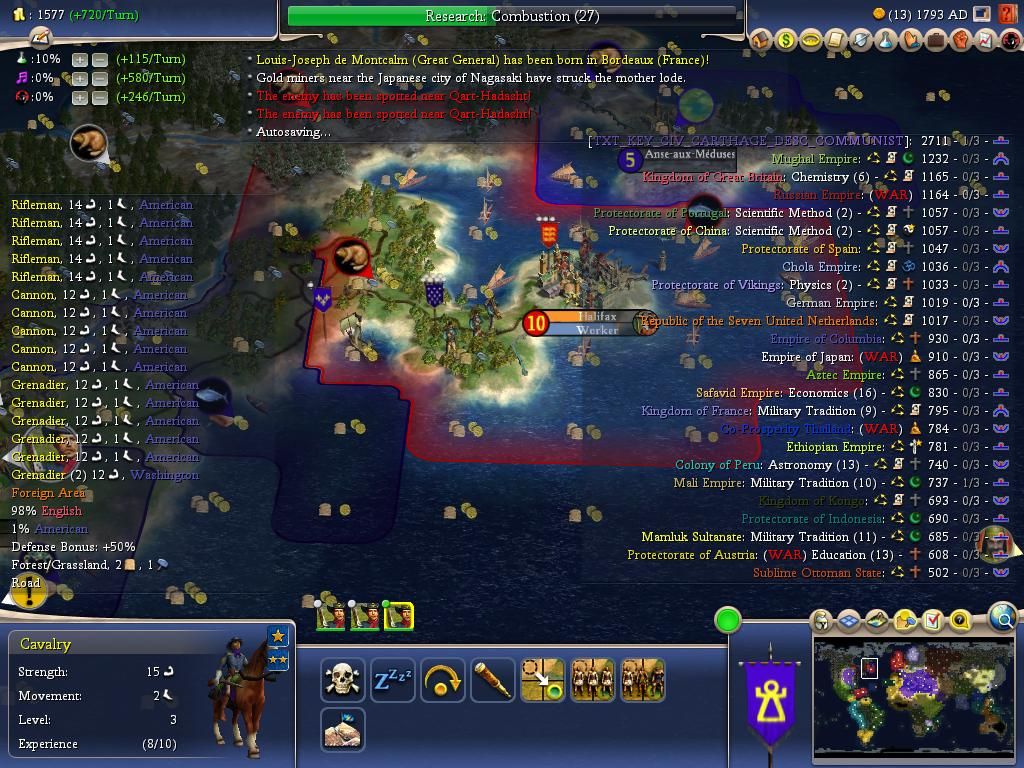
Unrelated to the Punic theatres of war, the British Empire was struggling with a massive uprising in their overseas colonies.
As conflicts emerged across the globe, British colonists eagerly sought to make
good profit by supplying the Punic territories to the West, however, the Parliament back in the home islands imposed a trade embargo
between the colonists and the Phoenicians, fearing it would make Hannibal too powerful.
Enraged by this latest grievance, the colonists rechristened themselves
as Columbians and took up arms, subsequently crowning an Emperor of their own;
with the charismatic immortal Emperor Washington Norton I at the helm,
they soon began to carve out their own destiny by laying siege to
the loyalist stronghold of Halifax.
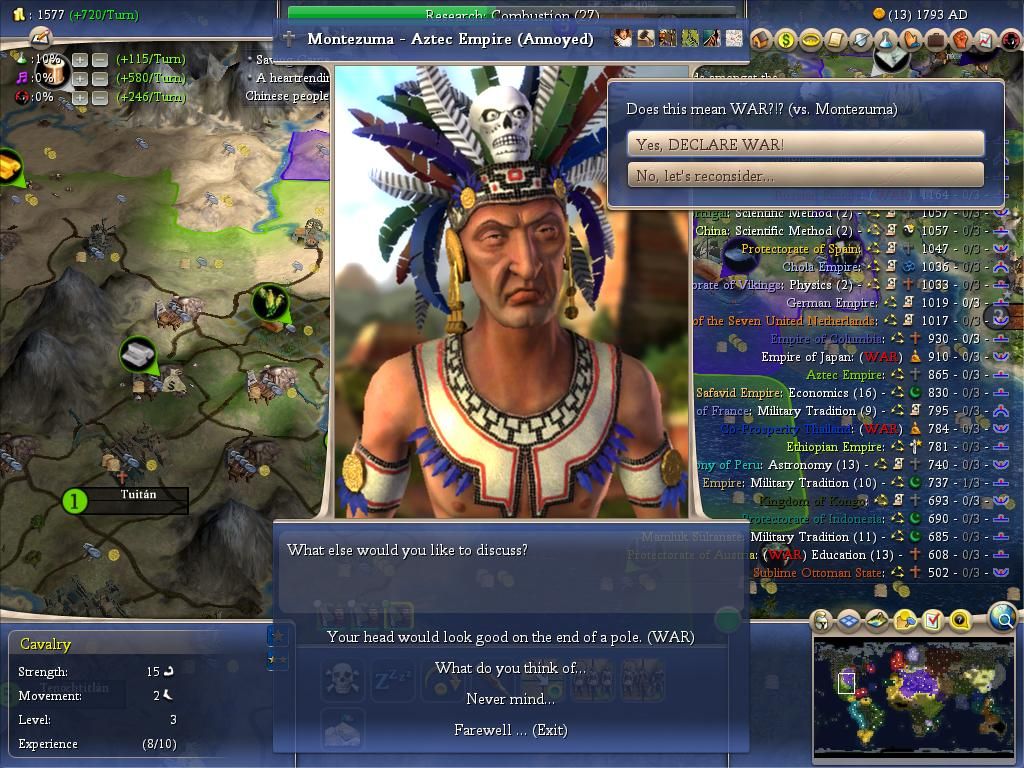
Hannibal had now declared war on Mexico, expanding the number of fronts, but perhaps a decided necessity.
It was no secret that Japanese & Roman supply lanes ran through Mexico and linked up together via Mexican middlemen.
The Mexican government was known to be sympathetic towards and firmly in the Roman camp as well, offering all kinds of material support to Caesar.
Hannibal would not let this stand.
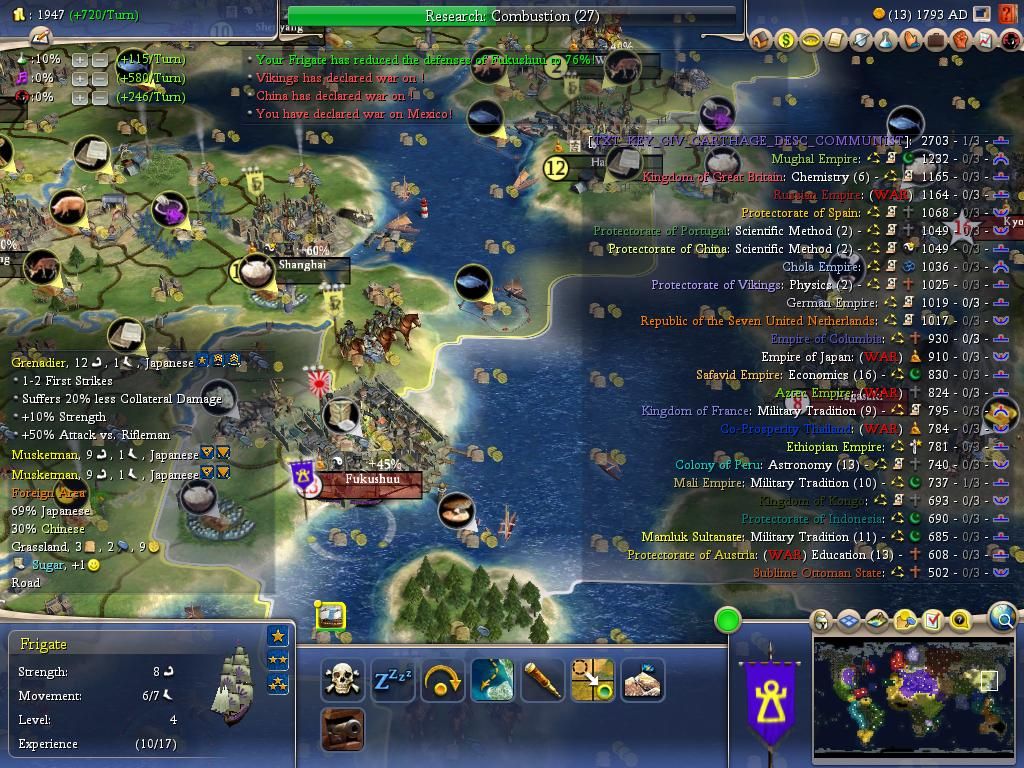
In the East Asian theatre, the first priority at hand was the liberation of Fuzhou.
The Japanese interior was bombarded night and day from the
PNS Astarte as Chinese divisions began to encircle Fuzhou.
With the
PNS Astarte enforcing a total blockade and all land outside the city under the watchful eye of Hongwu's cavalry, Fukushuu was being slowly starved into submission.
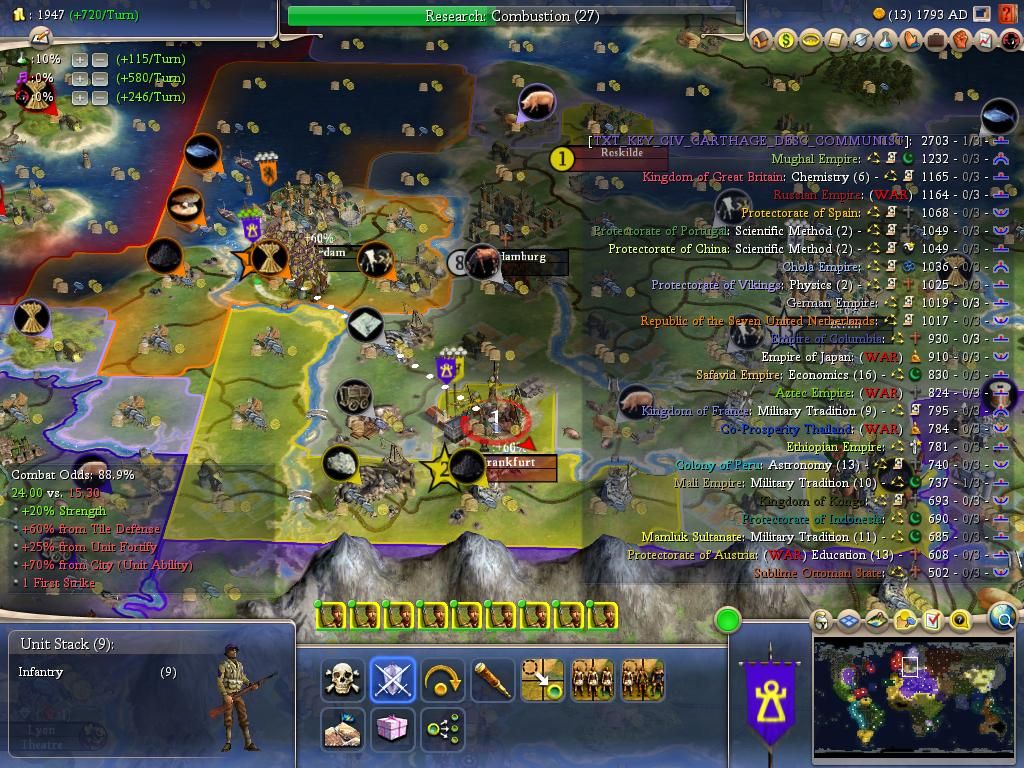
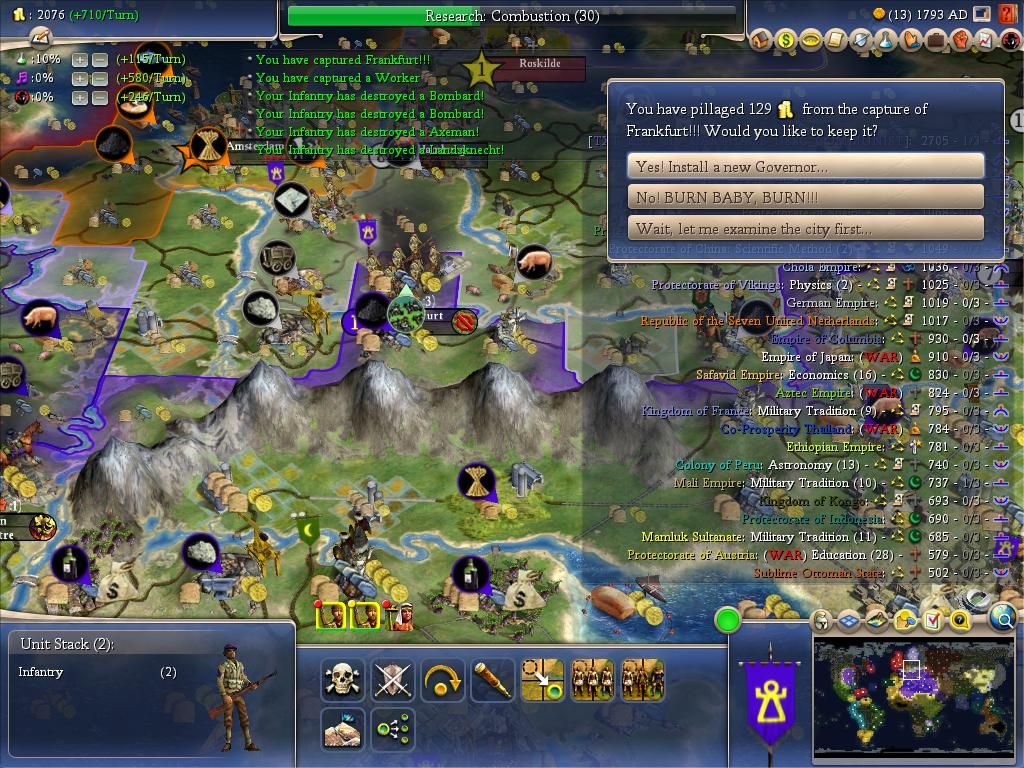
On the Primary Front, several divisions of state-of-the-art Punic infantry divisions
swept through the Third Rome's German suzerains with extreme prejudice.
The aim was to minimize the threat of a possible flanking maneuver directed by the Romans.
Had this avenue of attack gone unchecked, the rich, fertile heartlands of the Punic Sea would have been exposed to the worst of Roman depravities.











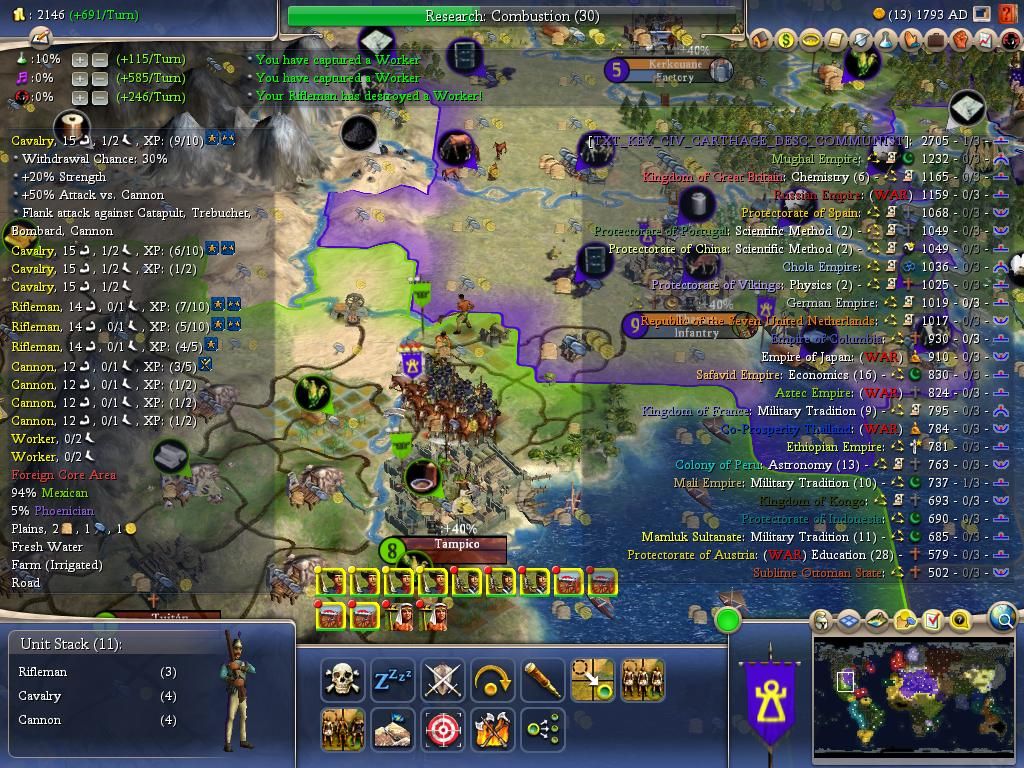
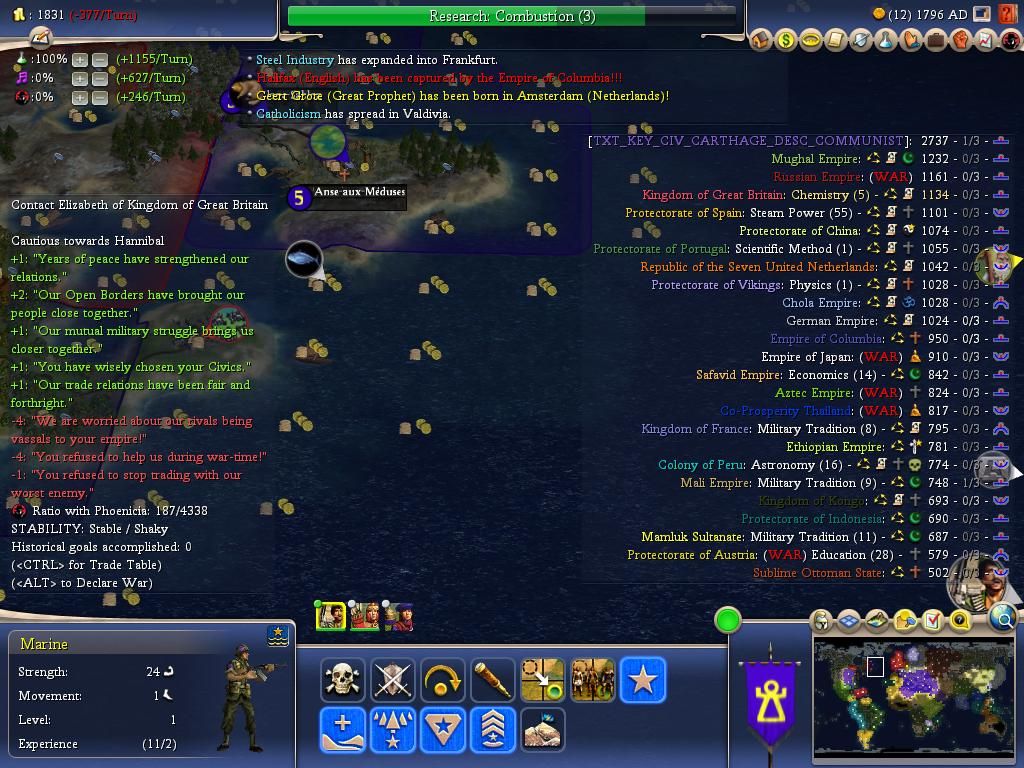
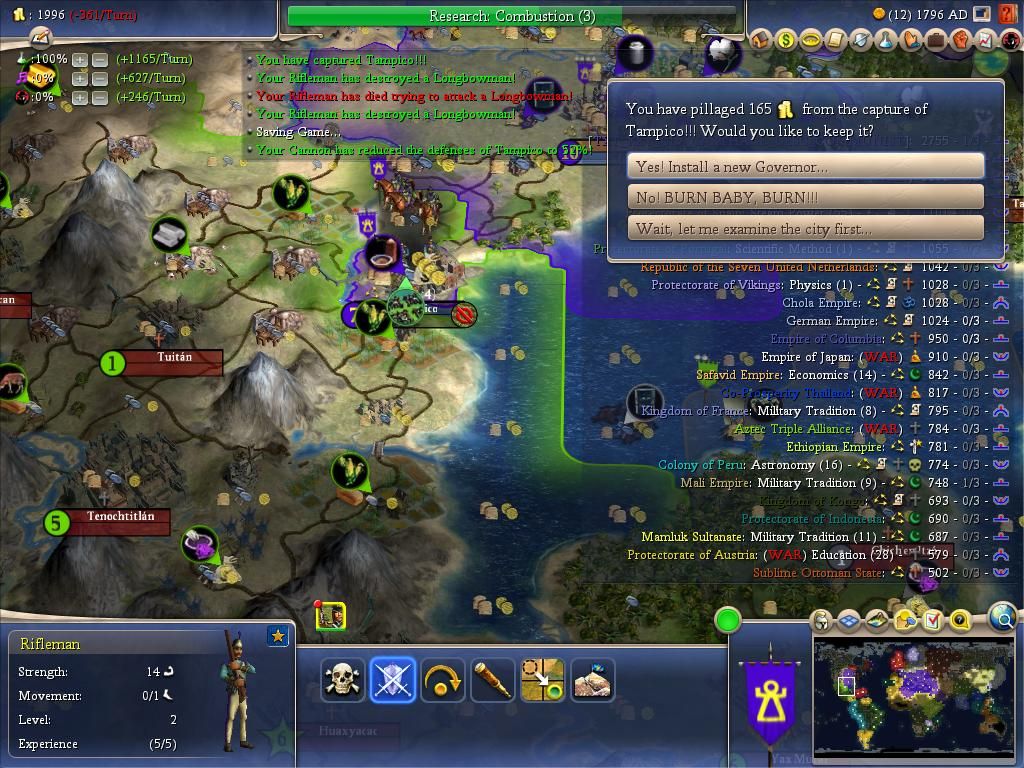
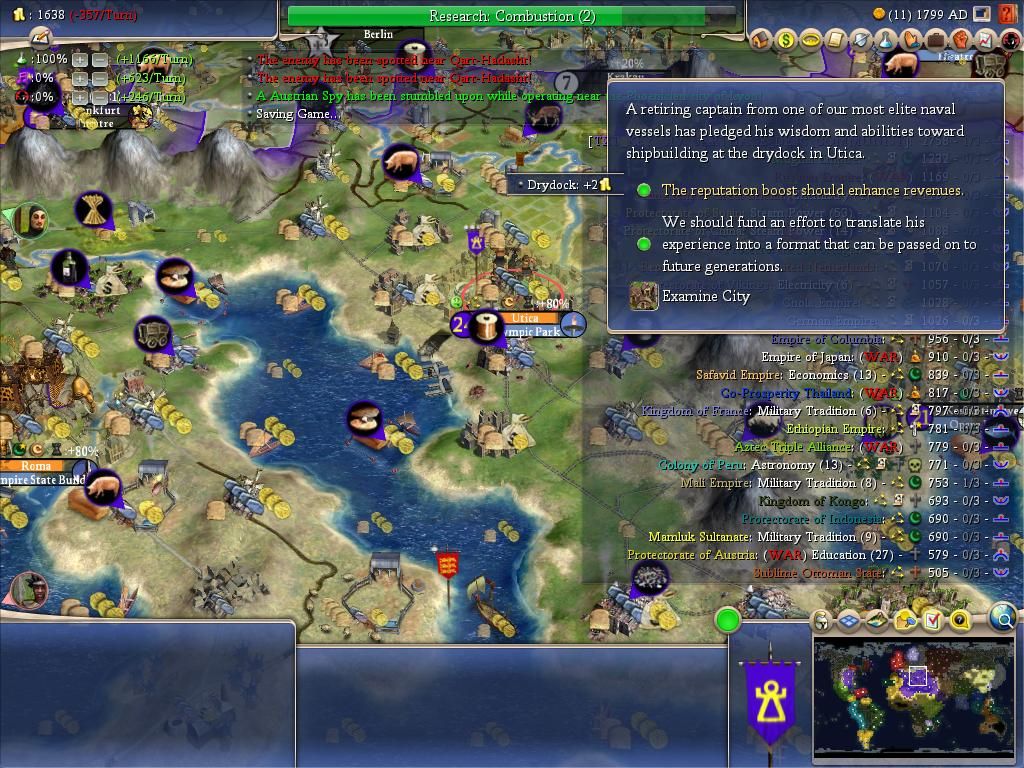
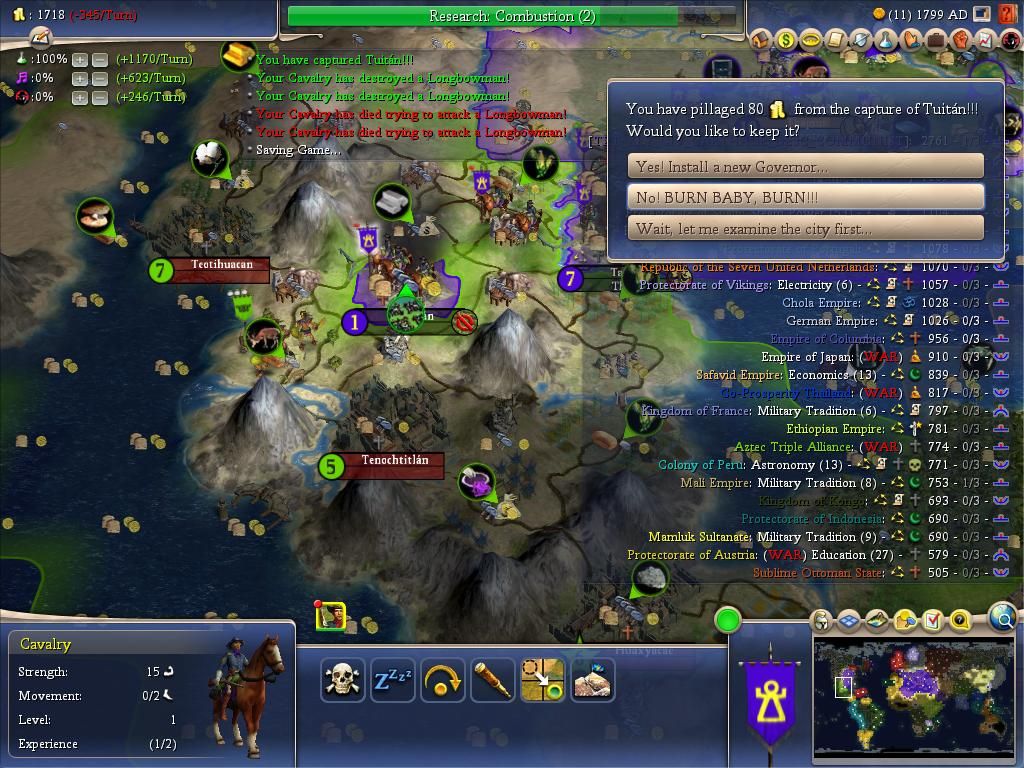
 , monty's days are numbered (arn't they always
, monty's days are numbered (arn't they always  )
)

